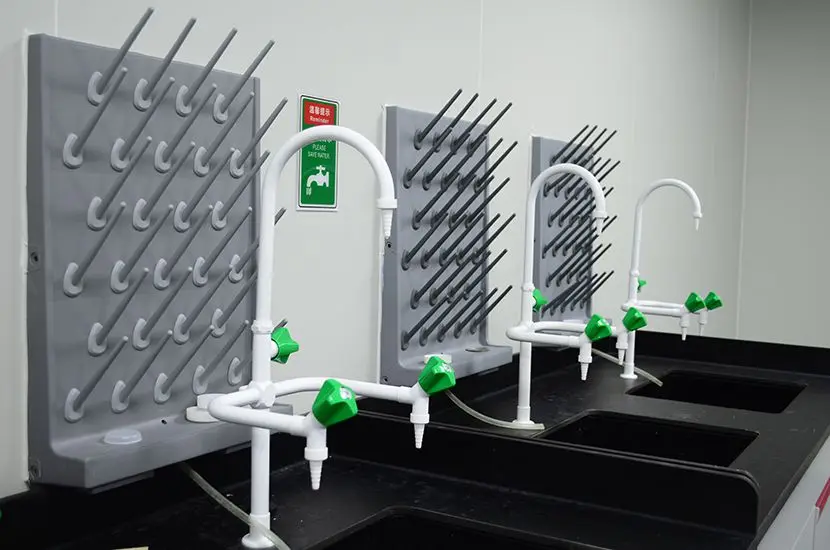
EV Charging Pile EU Testing & Certification
European Market Testing Standards
AC Charging Piles
IEC 61851-1
1. Scope
This part of IEC 61851 applies to EV supply equipment for charging electric road vehicles, with a rated supply voltage up to 1,000 V AC or up to 1,500 V DC, and a rated output voltage up to 1,000 V AC or up to 1,500 V DC.
IEC 61851-22
1. Scope
This part of IEC 61851, together with Part 1, specifies the requirements for AC electric vehicle charging stations for conductive connection to electric vehicles, with AC supply voltages in accordance with IEC 60038 up to 690 V.
This standard does not cover all safety aspects related to maintenance.
The scope of this part does not include box-type assemblies with socket outlets installed for the purpose of delivering energy to the vehicle, which have no charging control functions.

DC Charging Piles
IEC 61851-1
1. Scope
This part of IEC 61851 applies to EV supply equipment for charging electric road vehicles, with a rated supply voltage up to 1,000 V AC or up to 1,500 V DC, and a rated output voltage up to 1,000 V AC or up to 1,500 V DC.
IEC 61851-23
1. Scope
This part of IEC 61851, together with IEC 61851-1:2010, specifies the requirements for DC electric vehicle (EV) charging stations, hereinafter referRED to as "DC chargers", for conductive connection to the vehicle, with AC or DC input voltages up to 1,000 V AC and up to 1,500 V DC, according to IEC 60038.
Note 1: This standard includes information on EVs for conductive connection, limited to the necessary content for describing the power and signaling interface.
This part covers DC output voltages up to 1,500 V.
Requirements for bi-directional power flow are under consideration.
Note 2: Typical diagrams and variations of DC charging systems are shown in Annex D.
European Market Test Items
1. Classification
2. Charging modes and functions
3. Continuous continuity checking of the protective conductor
4. Communications
5. Protection against electric shock
6. Degrees of protection against access to hazardous live parts
7. Stored energy
8. Cable assembly requirements
9. Cable dimensions
10. Strain relief
11. Cable management and storage means for cable assemblies
12. Inrush current
13. Clearances and creepage distances
14. IP degree
15. InsULation resistance
16. Touch current
17. AC withstand voltage
18. Impulse dielectric withstand
19. Temperature rise
20. Damp heat functional test
21. Minimum temperature functional test
22. Dry test
23. Ambient humidity
24. Cold test
25. Saline mist (optional)
26. Solar radiation (optional)
27. Meter (optional)
28. Mechanical strength
29. Mechanical impact
30. Stability
31. Overload and short-circuit protection
32. Short-circuit protection of the charging cable
33. Automatic reclosing of protective devices
34. Emergency switching of disconnect (optional)
35. Marking and instructions
36. Durability test for marking
37. Control pilot function through a control pilot circuit using a PWM signal and a control pilot wire
38. Electromagnetic environmental tests
39. Immunity to EM disturbances
40. Immunity to electrostatic discharges
41. Immunity to low-frequency conducted disturbances
42. Immunity to high-frequency conducted disturbances
43. Immunity to radiated electromagnetic disturbances
44. Emitted EM disturbances
45. Low-frequency conducted disturbances
46. High-frequency conducted disturbances
47. Radiated electromagnetic disturbances
JJR Laboratory Services in China
JJR Laboratory has established a comprehensive testing and certification framework for EV charging piles. We assist clients with structural assessments, material selection consultation, product testing and certification. Additionally, we offer risk assessments prior to certification testing and provide effective solutions and guidance for post-certification improvements.
Email:hello@jjrlab.com
Write your message here and send it to us
 How Do You Get a CE Mark
How Do You Get a CE Mark
 IEC 60529 IP Rating Ingress Protection Standard
IEC 60529 IP Rating Ingress Protection Standard
 IEC 60601-1 Medical Electrical Equipment Basic Saf
IEC 60601-1 Medical Electrical Equipment Basic Saf
 European Authorized Representative Medical Devices
European Authorized Representative Medical Devices
 EU Waste Electrical and Electronic Equipment Direc
EU Waste Electrical and Electronic Equipment Direc
 How to Get CE Approval
How to Get CE Approval
 Accelerated Ageing Test
Accelerated Ageing Test
 IP Ingress Protection Testing
IP Ingress Protection Testing
Leave us a message
24-hour online customer service at any time to respond, so that you worry!




